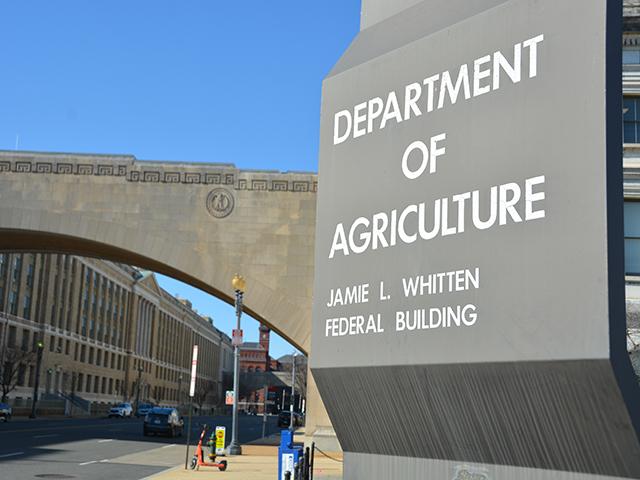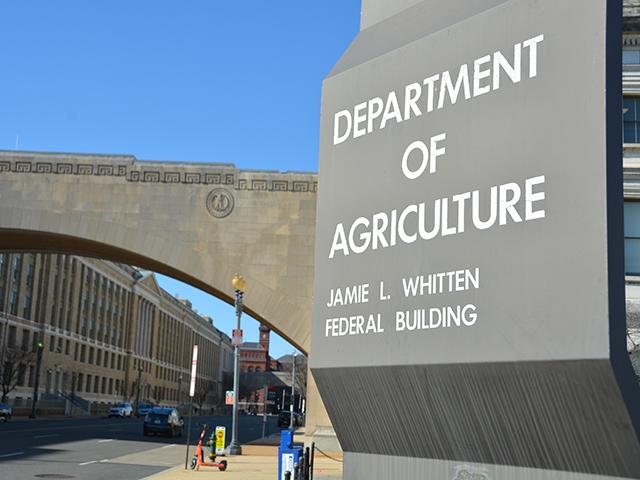Ag Policy Blog
Clock Ticks on Federal Budget Impasse, Affects Farmer Signup for USDA Programs
Once again, the clock on a potential partial government shutdown is ticking. The failure to come to terms on the federal budget could finally impact dairy and crop farmers signing up for programs with the Farm Service Agency (FSA).
The Washington Post reported Sunday that talks stalled on a possible budget deal. A lack of action will shut down USDA and other federal departments, such as EPA and the Department of Transportation, on Friday. Other departments such as Defense, Labor, Interior, Homeland Security, Education and Health and Human Services have until March 8.
Again, Congress faces a deadline to fund the federal government for Fiscal Year 2024 or pass another short-term extension. Congress began in 2023 with grand plans to pass each agency's funding bill by the Sept. 30, 2023, deadline. It has missed every deadline since then and remains mired in negotiations to fund federal agencies already five months into the federal fiscal year.
The Wall Street Journal reported that President Joe Biden has called a Tuesday meeting between House and Senate leaders. Lawmakers had agreed in January on a $1.6 trillion spending level for FY 2024.
USDA's funding ends after March 1. This comes as USDA opens enrollment for Dairy Margin Coverage (DMC) on Feb. 28 and is in the final three weeks of enrollment for Agricultural Risk Coverage and Price Loss Coverage (ARC and PLC), which has a March 15 deadline.
P[L1] D[0x0] M[300x250] OOP[F] ADUNIT[] T[]
Agriculture Secretary Tom Vilsack will address farmers at the Commodity Classic event on Friday. Chances are Congress will still be in the middle of trying to clear legislation as Vilsack addresses the crowd.
During recent government shutdowns, members of Congress -- the body causing the shutdown -- drafted letters to the Secretary calling on USDA to remain open for farmer enrollments even though Congress forced the agencies to close. Some federal workers, such as air traffic controllers, would continue to work unpaid until the funding situation is resolved.
USDA also is in the middle of the funding arguments because congressional appropriators are leveraging funding for the Women, Infants and Children (WIC) program -- a Democratic priority -- by pushing another proposal for a pilot project to restrict the kind of foods people can buy under the Supplemental Nutrition Assistance Program (SNAP) -- a GOP priority.
As DTN Political Correspondent Jerry Hagstrom reported last week, groups representing grocers and the food industry came out last week in opposition to plans restricting SNAP purchases.
The USDA funding bill also is tied to the Food and Drug Administration (FDA). Since last spring, Republican appropriators have sought to block FDA from continuing to allow prescriptions for the abortion drug mifepristone. That issue alone has made it nearly impossible for Republicans and Democrats to come to terms on the USDA/FDA bill.
USDA's funding bill includes other policy riders as well. Among them are plans that would restrict Vilsack's ability to use the Commodity Credit Corporation (CCC) fund after Vilsack spent $3.1 billion on the Partnership for Climate-Smart Commodities.
DTN also reported last week that at least two U.S. senators -- Sens. Jon Tester, D-Mont., and Chuck Grassley, R-Iowa -- are calling on their colleagues to oppose any policy riders that would block USDA from dealing with competition challenges through the Packers and Stockyards Act. That language also is included in the funding bill for USDA.
Beyond all of that, USDA also still doesn't know in this funding negotiation just how much discretionary funding the department will receive for its various agencies and programs and what kind of spending cut USDA will have to apply in the last seven months of the funding year.
Chris Clayton can be reached at Chris.Clayton@dtn.com
Follow him on X, formerly known as Twitter, @ChrisClaytonDTN
(c) Copyright 2024 DTN, LLC. All rights reserved.






Comments
To comment, please Log In or Join our Community .